Carole Landis—born Frances Lillian Mary Ridste on January 1, 1919, in Fairchild, Wisconsin—came from modest beginnings. Her father left the family when she was young, leaving her mother to raise the children. Yet even in her early years, Carole’s passion for performance and storytelling shone brightly. By her teenage years, she made the bold decision to leave school and chase her dreams in Hollywood, armed with little more than ambition and a natural star quality.
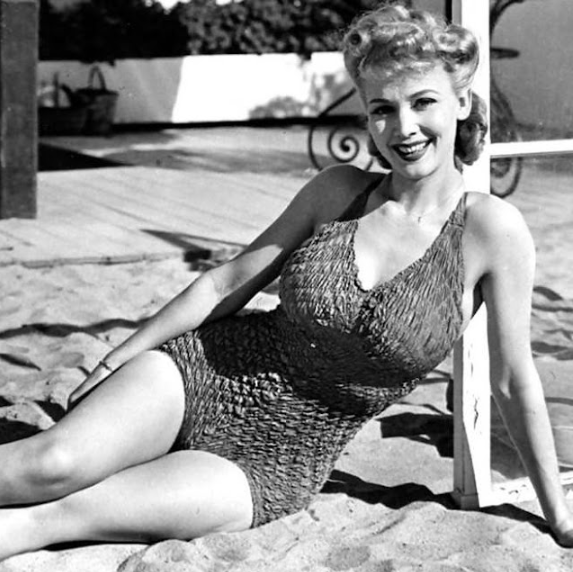
Taking inspiration from her idol Carole Lombard, she transformed herself into “Carole Landis,” even dyeing her hair blonde to create the image that would captivate audiences. Her early Hollywood days were filled with small, fleeting roles, but her determination and charisma ensured that bigger opportunities were just ahead.
Video : Carole Landis Looks STUNNING ~ Moon Over Miami (1941) Betty Grable Don Ameche Robert Cummings
The Breakthrough Role: One Million B.C.
Carole’s career-defining moment arrived in 1940 with the prehistoric adventure One Million B.C.. Playing the role of Loana, she wore a costume that became instantly iconic and earned her the nickname “The Ping Girl,” a playful reference to the spark and excitement she brought to the screen.
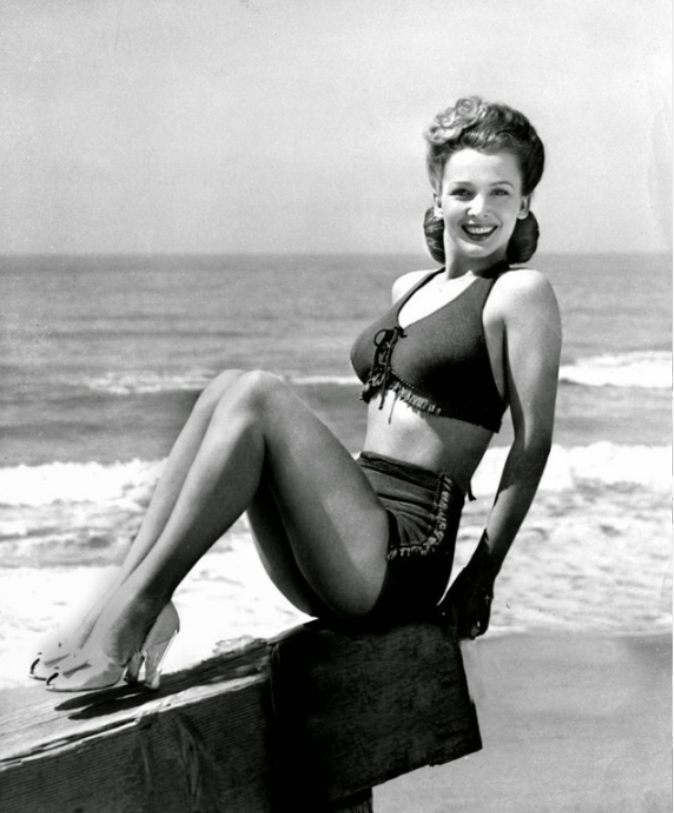
Her performance captured the imagination of audiences and studios alike. Soon, she signed with Twentieth Century-Fox, where she charmed audiences in popular films such as Moon Over Miami and I Wake Up Screaming. She wasn’t just another pretty face—Carole had genuine acting talent and a warm screen presence that made her stand out among the many aspiring stars of the era.
A Versatile Performer with Natural Talent
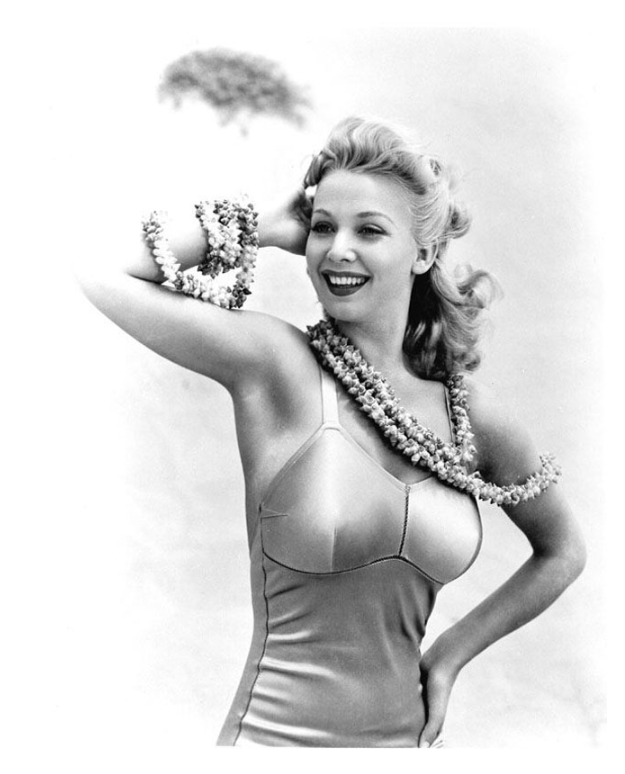
Throughout the early 1940s, Carole Landis showcased her versatility. Whether appearing in romantic comedies, musicals, or dramas, she brought an effortless charm to each role. Her vibrant energy and magnetic personality made her one of the most recognizable actresses of her time, and her performances continue to delight classic film enthusiasts today.
Video : One Million Years B.C. (1940, Fiction) Carole Landis & Lon Chaney Jr. | The World at Morning
She also possessed a beautiful singing voice, which allowed her to transition seamlessly between acting and musical numbers—an asset in an era when Hollywood demanded multi-talented stars. Her ability to move gracefully between genres proved she was more than just a glamorous figure; she was a true entertainer.
A Wartime Heroine: Hollywood’s Blonde Bomber

During World War II, Carole Landis became much more than a Hollywood star—she became a symbol of hope and comfort for American servicemen. She threw herself into USO tours, traveling thousands of miles to entertain troops stationed overseas.
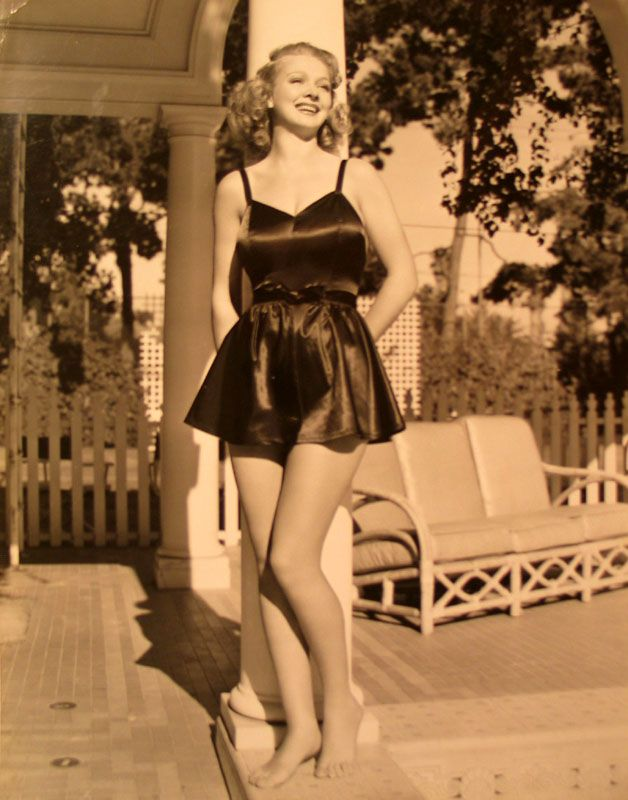
Nicknamed “The Blonde Bomber,” she was beloved by soldiers for her warmth and dedication. Carole didn’t just perform; she visited hospitals, wrote letters to soldiers’ families, and lifted the spirits of those far from home. Her book Four Jills in a Jeep chronicled these experiences and was later adapted into a popular film.
Through her tireless efforts, she demonstrated that her heart matched her beauty. Her wartime work remains one of the most inspiring chapters of her life, proving that she was as compassionate as she was glamorous.
Beyond the Spotlight: A Star Who Gave Back
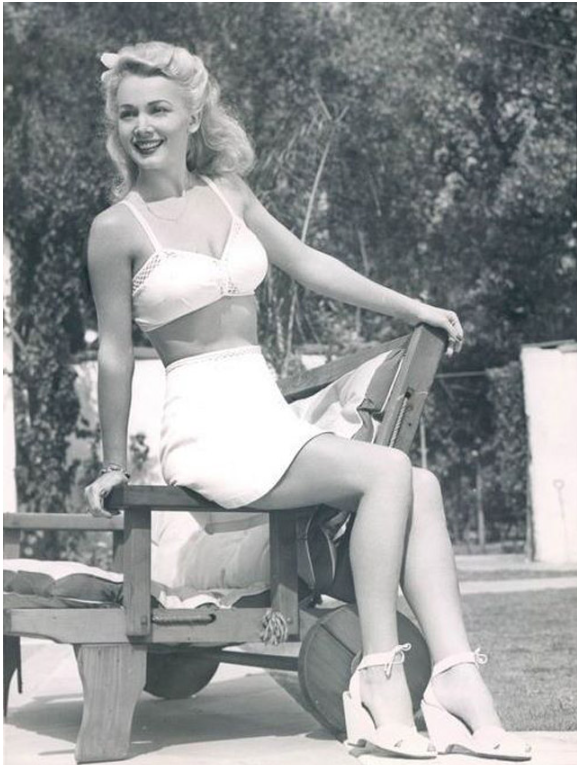
Carole’s commitment to philanthropy and her love for her fans set her apart from many of her contemporaries. She believed in using her fame to bring comfort and joy to those in need, and her work with the USO became an essential part of her legacy.
Even as she dazzled on the big screen, she always made time to connect with the people who admired her, whether through letters, personal appearances, or heartfelt gestures. This generosity earned her lasting admiration from both audiences and fellow performers.
A Legacy of Beauty, Talent, and Grace

Although her time in Hollywood was relatively brief, Carole Landis left an enduring mark on classic cinema. Her filmography—spanning over 50 productions—continues to charm audiences and inspire film historians. Fans still celebrate her iconic performances, her groundbreaking USO service, and her ability to light up every scene she entered.
Her life is a reminder that true stardom is defined not only by fame but also by the positive impact one leaves behind. Carole’s combination of screen talent and genuine compassion made her unforgettable, and her story remains an important chapter in Hollywood’s Golden Age.
Conclusion: Hollywood’s Radiant “Ping Girl”
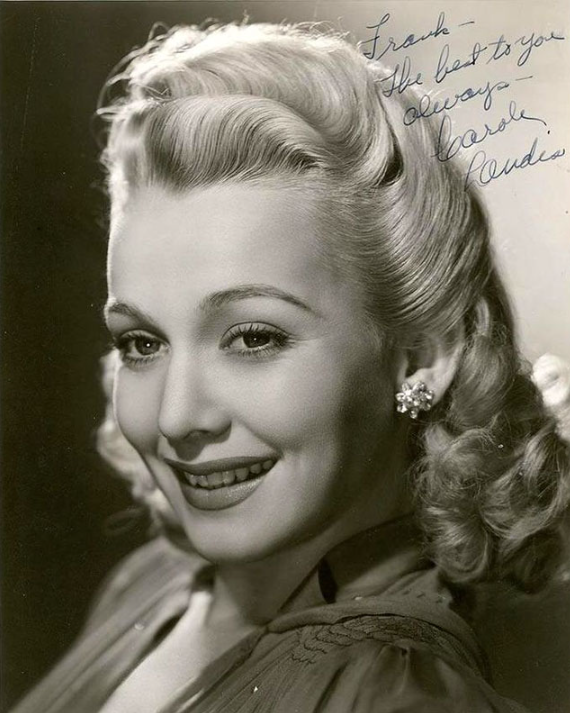
Carole Landis captured the essence of 1940s glamour while showing the world what it means to give back. From her breakout role in One Million B.C. to her tireless efforts entertaining troops during World War II, she embodied both star power and heartfelt humanity.
Decades later, her films continue to sparkle and her legacy endures—a shining example of how talent, generosity, and grace can create a lasting impression long after the cameras stop rolling.


